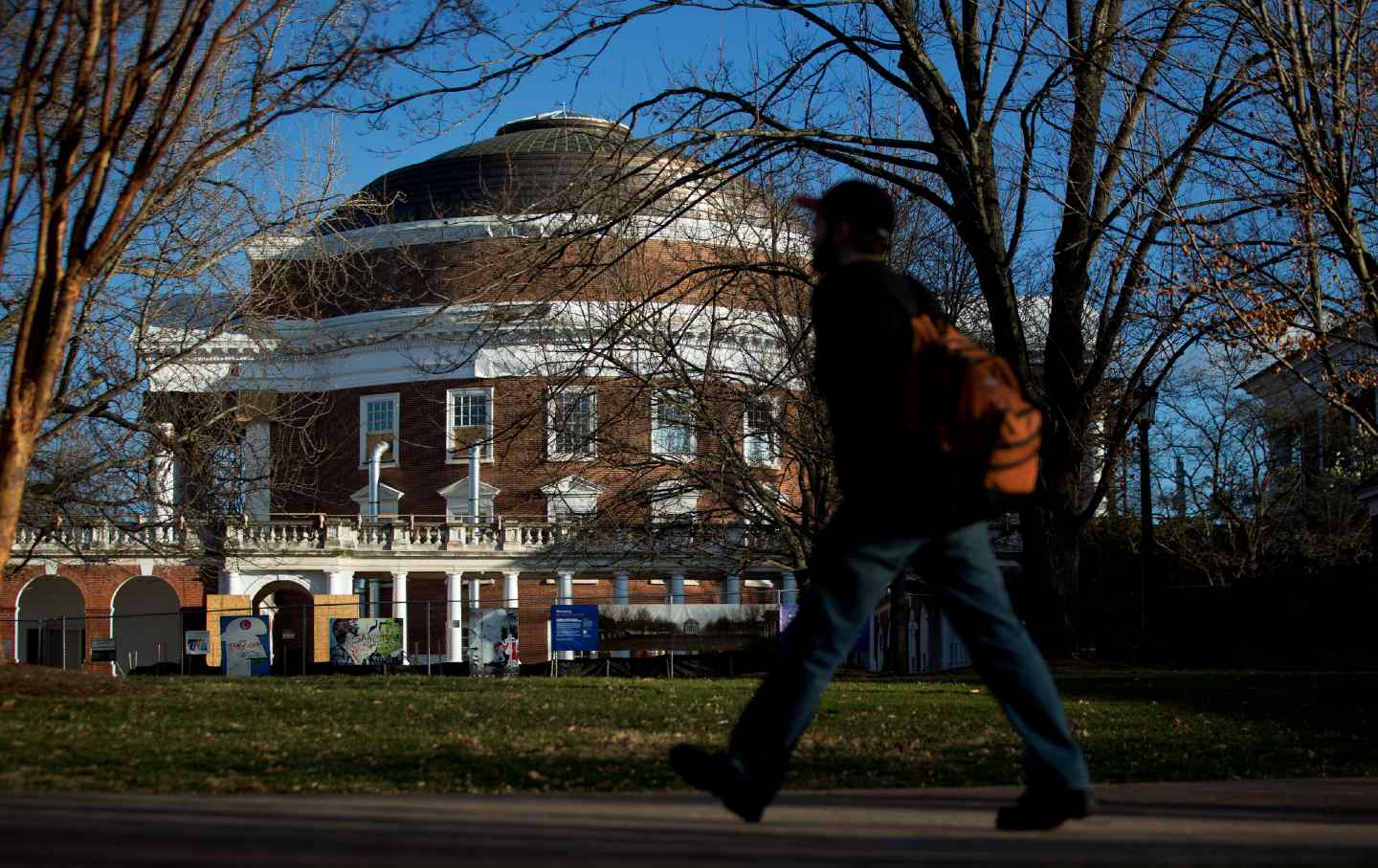A New Florida Law Allows C-Sections Outside of Hospitals
The bill, signed by Governor Ron DeSantis, permits the procedure in so-called “advanced birthing centers.”

This spring, Florida Governor Ron DeSantis signed a bill into law allowing doctors in the Sunshine State to do something forbidden everywhere else: perform caesarian sections outside hospitals, in outpatient facilities dubbed “advanced birthing centers” with far skimpier staffing and resources.
Supporters have (dubiously) cast this as a move to improve access to obstetric services. Doctors have (appropriately) called it a threat to the safety of women and newborns. But DeSantis’s embrace of outpatient C-sections is also something else: It’s a prime example of the conservative “supply-side” healthcare vision at work, purporting to address shortfalls in medical care through deregulation, market competition, and profit-driven supply expansion. In reality, it will do little to advance access to care, while putting patients’ health at risk. And unfortunately, there is more in store.
As KFF Health News reported in May, DeSantis’s C-section bill was supported by Women’s Care Enterprises, a private equity–owned doctors’ group with multiple practice locations in Florida. In recent years, private equity firms—which rely on leveraged investments and asset-stripping to extract large profits before dumping their acquisitions in short order—have been invading virtually every nook and cranny of the healthcare ecosystem. Private equity–owned doctors’ groups took over a big chunk of emergency-room care nationwide, notoriously driving profits—and causing misery—through a “surprise billing” business strategy. Today, some 7 percent of gastroenterologists and dermatologists work in private equity–owned practices. It’s no surprise that private equity has now entered the women’s health space: Between 2010 and 2019, private equity firms acquired 24 women’s health groups, encompassing 605 offices and more than 2,000 clinicians.
The move to permit C-sections beyond hospital walls is particularly troubling in this context. Private equity has a dismal record on care quality: One study found that private-equity acquisition led to a 10 percent increase in mortality in nursing homes. But issues of ownership aside, there are good reasons C-sections should take place in hospitals: While commonly performed, they are still major abdominal surgeries. I’m not an obstetrician, but as a critical care doctor I do sometimes care for critically ill postpartum patients. When things go unexpectedly south in a postoperative situation, you want the resources of a hospital at your disposal, including the ICU. In the postpartum period, there is also the potential need for emergency rescue measures for newborns.
Obstetricians tend to have the same view. “Every C-section is high risk. Period. End of story,” Dr. Amos Grünebaum of Hofstra University told The New York Times. Others are concerned that allowing C-sections in investor-owned outpatient centers might drive unnecessary provision of this procedure, driven by financial rather than medical motives.
So what to make of this push? It’s not clear how widespread take-up will even be; indeed, Women’s Care Enterprises has said it does not plan to offer C-sections as yet. But whatever happens, the law should be understood as part of the larger “supply-side” healthcare agenda championed by the Trump administration after the failure of their ACA repeal efforts. His Department of Health and Human Services’ white paper, “Reforming America’s Healthcare System Through Choice and Competition,” outlined policies to expand “consumer-driven health care” and also to deregulate provider supply, such as through the repeal of “certificate of need” laws that regulate new hospital construction and loosening of laws around licensure.
Such ideas can seem appealing across the political spectrum because they do respond to very real problems. There has been, for instance, a spate of closures of obstetrical facilities in the US, particularly in rural areas. In many areas, there are inadequate numbers of providers. Consolidation in the hospital-sector has driven up costs. But as I recently discussed in Phenomenal World, the supply-side approach to these issues will fail for multiple reasons, including the simple reality that the market “targets” investments to areas deemed profitable, not necessarily those with greater community health needs. DeSantis, for instance, repealed certificate-of-need laws in his state in 2019, a shift that led to what has been described as a “hospital building boom” in the state. However, according to a KFF Health News report, these new hospitals sometimes appear in areas where there already is good infrastructure.
The risk of mismatch and redundancies is particularly high in Florida because the state leaves so many of its residents without any health coverage at all: It has the fourth-highest rate of uninsurance of any state in the nation, in large part because it has not expanded its Medicaid program. In a 38-state study, colleagues and I found that regions with higher uninsurance rates receive significantly less hospital capital investment per capita—even though their populations are sicker and more in need of care. This mismatch between the supply and need for medical services was referred to by the leftist British general practitioner and epidemiologist Julian Tudor Hart as the “inverse care law.”
In a press release, Republican state Senator Senator Gayle Harrell, who pushed for the new C-section law as part of a package of health laws dubbed “Live Healthy,” celebrated the legislation’s passage. “Free-market principles,” she said, “show us the private sector can innovate in ways government could never imagine.” But the free market distributes healthcare infrastructure and services on the basis of patients’ means—not their needs. We’re not going to fix the problems of American healthcare with corporatized supply-side economics—much less by performing C-sections in facilities dangerously unprepared for the inevitable complications. For that, we need a health system that covers everyone and a system of health planning to direct new investments where they are needed—not where they are profitable to private-equity firms.








